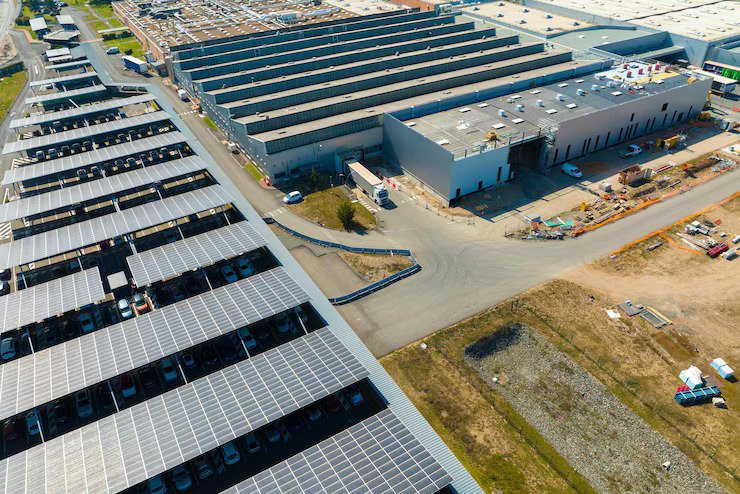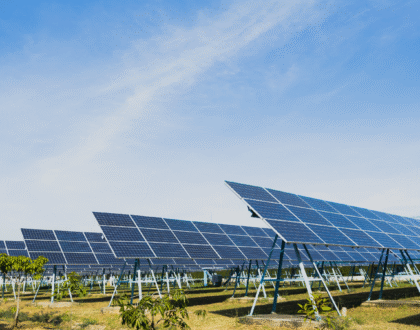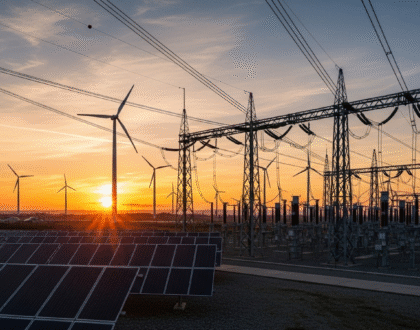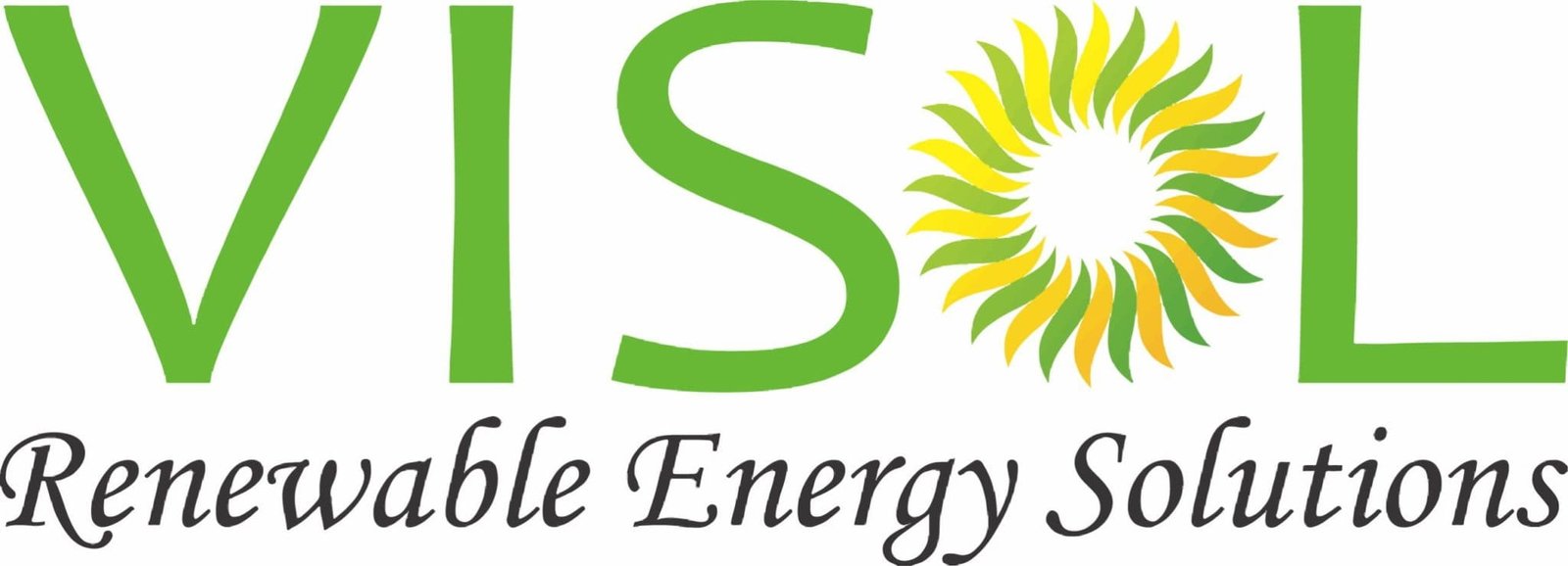Solar Panels for Industrial Buildings: Cost, ROI, and Installation Tips

Introduction: A Tale from the Factory Floor
Picture this scene: You’re standing in the heart of your Mumbai industrial building—maybe it’s a textile mill in Navi Mumbai, a warehouse in Goregaon, or a food-processing plant in Thane. The machines are humming, conveyors are rolling, fluorescent lights hum overhead, and across the board, the air quality is also humming—heat, dust, and noise. And day in, day out, your power meter is spinning fast, billing your energy consumption into the stratosphere.
It’s inevitable. Industrial operations consume energy at every opportunity. And month after month, those electricity bills chip away at your profit margins. You keep thinking, ‘There must be a better way.’
Now, fast-forward. The same roof that once hosted silent dust and pigeons now holds neat rows of solar panels. They quietly soak up Mumbai’s sunshine, converting it into clean, renewable electricity. Your monthly bill shrinks. Your operations stay uninterrupted, even during grid outages. Your company earns potential green certifications. And, you rest easier knowing you’re doing something good for the planet.
That’s the power of solar panels for industrial buildings. What once seemed futuristic is now practical, cost-effective, and increasingly necessary. This isn’t just about savings—it’s about responsibility, independence, and future-proofing your business.
In this blog, we’ll walk you through everything you need to know:
- Why solar is the shift we can’t ignore
- The nuts and bolts of solar for industrial rooftops
- What goes into cost, what drives ROI, and how to maximise both
- Pro-level installation tips to get it right
- How to find and vet solar panel installation companies in Mumbai
- Why Visol India is the competent partner for industrial solar success
Let’s dig in—together.
Solar: The Environmental Shift We Must Embrace
In Mumbai’s heat and humidity, you already feel the effects of environmental strain. Pollution, erratic weather, severe monsoons—these are more than headlines. They’re daily realities. Industrial energy usage plays a significant part.
But there’s a bright side. Industries like yours have the space, resources, and influence to drive change. Solar energy offers an elegant solution:
Clean, green power – No emissions. No smoke. Just the sun.
Reduced dependence on the grid – You control your energy flow.
Stability against outages – Back-up systems and hybrid setups mean fewer interruptions.
Money you keep – Lower bills, lower diesel usage, better ROI.
Let’s put it into perspective. Mumbai’s ambient air pollution is partly due to industrial sources. Reducing your carbon footprint isn’t just marketing speak—it’s a real-world impact. Installing large-scale panels on your roof helps clean the air and shows your workforce, community, and customers that you value their health.
Additionally, national renewable energy goals and subsidy schemes make green energy more accessible than ever. Going solar is an innovative and socially responsible choice.
Solar Panels for Industrial: A Game-Changer in Energy Strategy
Your industrial building draws power day and night, with heavy machinery, lights, texture lines, conveyors, HVAC, and compressed air. And that demand shows up on your bill.
So, where does solar fit?
Daytime peak-shaving – Solar panels supply clean energy when you most need it, reducing grid dependency.
Diesel genset relief – With solar support, your backup generators run less frequently, resulting in fuel and noise savings.
Sustainable credentials – Solar enhances your ESG profile, strengthens buyer trust, and potentially unlocks green financing opportunities.
Operational efficiency – Solar systems increasingly pair with monitoring tools to help optimise usage, reduce wastage, and forecast demand.
Talk about a win–win–win: profits, productivity, and planet, all together.
Solar Panels for Industrial Buildings: The Fundamentals
With our industrial setup, the key advantage is the sheer amount of rooftop real estate. Factories, warehouses, and cold-storage facilities often feature high, flat roofs—ideal locations for panel installation.
Why Industrial Roofs Are Perfect for Solar
- They’re wide and unobstructed, maximising panel layout.
- Typically made for loading, they support solar infrastructure.
- They offer extended hours of sunlight, ideal for capturing energy.
- Easy access enables clean, safety compliance, and future expansion.
Solar Setup Options
On-Grid Systems
- Direct grid connection, net metering enabled.
- Best if your facility runs during the day and night.
- Efficiently sinks surplus power into the grid.
- Doesn’t rely on expensive battery systems.
Off-Grid Systems
- Stores energy in battery banks.
- Ideal for remote or grid-limited sites.
- Great for critical processes during outages.
- More capital-intensive and used when needed.
Hybrid Systems
- Combines solar, grid, and storage.
- Offers real-time energy balancing.
- Keeps key operations running during power losses.
- Offers best-in-class reliability with efficiency.
Choosing the right system is crucial, and we’ll discuss this further under installation tips.
Breaking Down Cost, ROI & Installation Tips for Industrial Solar
What’s the Cost?
For industrial projects, economies of scale help—bigger systems have lower per-kW costs. That said, here’s how costs generally shake out:
System size – 100kW vs. 500kW vs. 1MW
Panels & inverters – Tier‑1 brands cost more upfront but last longer
Mounting – Flat or sloped roofs, angled frames, ballast requirements
Electrical work – Cabling, switchgear, sync systems, and grid interconnection
Civil & safety – Waterproofing, fire clearance, structural upgrades
Permits & approvals – Net metering, utility consent, building committee
Batteries (if used) – Lithium or lead-acid, capacity depends on backup criticality.
Monitoring & tracking – Software & instrumentation
Rule of thumb: ₹45–55 lakh for a 100 kW ground-up system, depending on variables.
For example:
- 100 kW on-grid → ~₹45 lakh.
- Add 50 kWh batteries → +₹8–10 lakh.
- Add AMC/monitoring extras → +₹2–3 lakh.
- Scaling helps. A 500 kW or 1 MW system offers better pricing and leverage.
What’s the ROI?
Industrial solar ROI is impressive:
Typical payback: 3–5 years, depending on rates and incentives
Useful panel life: 25+ years → 20+ years of low-cost electricity
Genset savings: Reduced runtime saves ₹30–40/litre for diesel
Accelerated depreciation: Up to 40% tax benefit in the first year
Net metering: Exported power gets credited, reducing future bills
Say your plant uses ₹30 lakh in annual electricity. If solar drops that by ₹10 lakh/year and costs ₹50 lakh, you’re cash-positive within three years. Then, every year after, the savings are in hand.
Installation Tips That Matter
1. Start with an energy audit
Understand your current load patterns: day vs. night, weekly peaks, critical machinery. A precise energy audit helps avoid over- or undershooting capacity.
2. Panel & inverter selection
Use only certified, Tier 1 panels rated for 25 years or more. Choose inverters from reliable brands. In industrial environments, panel durability is crucial—consider the challenges of heat, dust, and corrosion.
3. Consider the roof structure carefully
Flat rooftops are flexible, but you’ll need ballast systems or mechanical anchoring. Consider wind pressure, drainage, and waterproofing—engineers must validate plans.
4. Electrical integration & safety
Proper wiring, switchgear, surge protectors, lightning arrestors, and IS-compliant earthing—all of which must be up to code—design circuits according to load and redundancy needs.
5. Plan for maintenance & cleaning
Industrial roof dust accumulates rapidly, resulting in a 5–15% yearly loss in output if panels aren’t cleaned. Ensure the installation allows sufficient space between rows and provides a safe walkway access.
6. Opt for monitoring & analytics
Invest in a system that tracks generation, battery levels, and grid import/export. Remote dashboards help identify deviations early, such as panel shading, inverter faults, and string failures.
7. Engage an experienced solar EPC
The proof is in the execution—lifting panels, welding structures, cabling, and integrating with the grid or backup system—someone who has done this hundreds of times is worth their weight.
8. Verify approvals & paperwork
Net-metering, electrical board agreements, land and roof clearance, and safety sign-off—missing these can stall projects for months. Work with someone who handles it.
Navigating Solar Panel Installation Companies in Mumbai
Mumbai isn’t just any city. Its coastal humidity, high-rise density, monsoons, and energy boards create unique challenges:
- Permissions in shared industrial zones can bottleneck
- Salt in the air is corrosive.
- Roof waterproofing is essential.
- Panels must survive storm winds.
- Authority approvals vary section by section.
- Labour moves fast—safety planning is essential.
- Space is premium, and logistics are challenging.
So, who can handle it? You need a partner who understands Mumbai and industrial demands. Here’s what to look for:
Mumbai-specific experience – Not just “we’ve installed solar”—but “we’ve done 10 factories in industrial estates.”
Turnkey EPC capability – From audit to installation to monitoring to subsidy paperwork—you want just one company accountable.
Strong partnerships with top panel and inverter manufacturers, bankable warranty coverage, and reputable dealers.
Subsidy-savvy – Knowledge of MNRE/SECI/MOEF subsidised funding and accelerated depreciation rules.
Industrial references – Ask for case studies, client visits, or video interviews—not just residential jobs.
Post-installation support – Monitoring, maintenance, and warranty claims are managed efficiently.
Visol India: Why We Shine for Industrial Clients
Here at Visol India, we’re more than installers. We’re your solar partners—transparent, professional, and fully committed. Whether you’re doing a 100 kW rooftop array or a 1 MW industrial park installation, we serve your needs end-to-end.
What Makes Us Different
Custom engineering – We don’t do cookie-cutter. We study every meter of your roof, every kWh you consume. We optimise layout, tilt, angles, and create realistic ROI projections.
Premium quality – We source only Tier‑1 panels (mono-PERC, bifacial options), string and hybrid inverters, and high-spec mounting hardware. We don’t compromise—your rooftop is your investment.
MCER & structural checks – Mumbai’s rooftops don’t behave like open fields. We review MEP drawings, waterproofing, ballast requirements, and wind-loading design to ensure your infrastructure remains safe and dry.
Compliance & approvals – Visol handles everything, including EESL, MSEDCL, BMC, fire NOC, and electrical inspector sign-off. No hand-offs. No miscommunication.
Installation crews – Our teams work in shifts, follow strict safety protocols, and stay disciplined during monsoons and hot afternoons.
Monitoring that works – We install remote SCADA/digital dashboards that provide granular visibility into performance, generation, plant health, and battery status, and we act quickly if things slip.
Reliable support – AMC contracts, annual module cleaning, thermal inspections, inverter firmware updates, panel replacements—if anything happens, we’re there.
Conclusion: The Future of Your Building Is Brighter Than Ever
Solar panels for industrial buildings are no longer optional—they’re imperative. They help you:
- Lower utility costs significantly.
- Offset diesel usage and pollution.
- Strengthen reliability and uptime.
- Improve environmental footprint.
- Enhance your corporate image.
- Qualify for green funding.
- Protect you from power crises.
In Mumbai’s dust, heat, and humidity, solar works. With thoughtful design and engineering, a solar plant rewards you month after month, decade after decade.
At Visol India, we specialise in industrial-scale solar integration in Mumbai. We walk the talk—engineering excellence, execution finesse, full compliance, and ongoing care are our standard. You get a reliable partner, not just a project vendor.
Let’s work together and unlock your rooftop’s hidden potential. Tap into the sun—and power your future.
Get Started with Visol India
Recommended Posts

How Industrial Solar Power Supports India’s Renewable Energy Goals
17th February 2026
How Much Can Industries Save with Solar Power? A Cost & ROI Analysis
17th February 2026

How Switching to Solar Power Can Reduce Your Electricity Expenses
22nd January 2026

